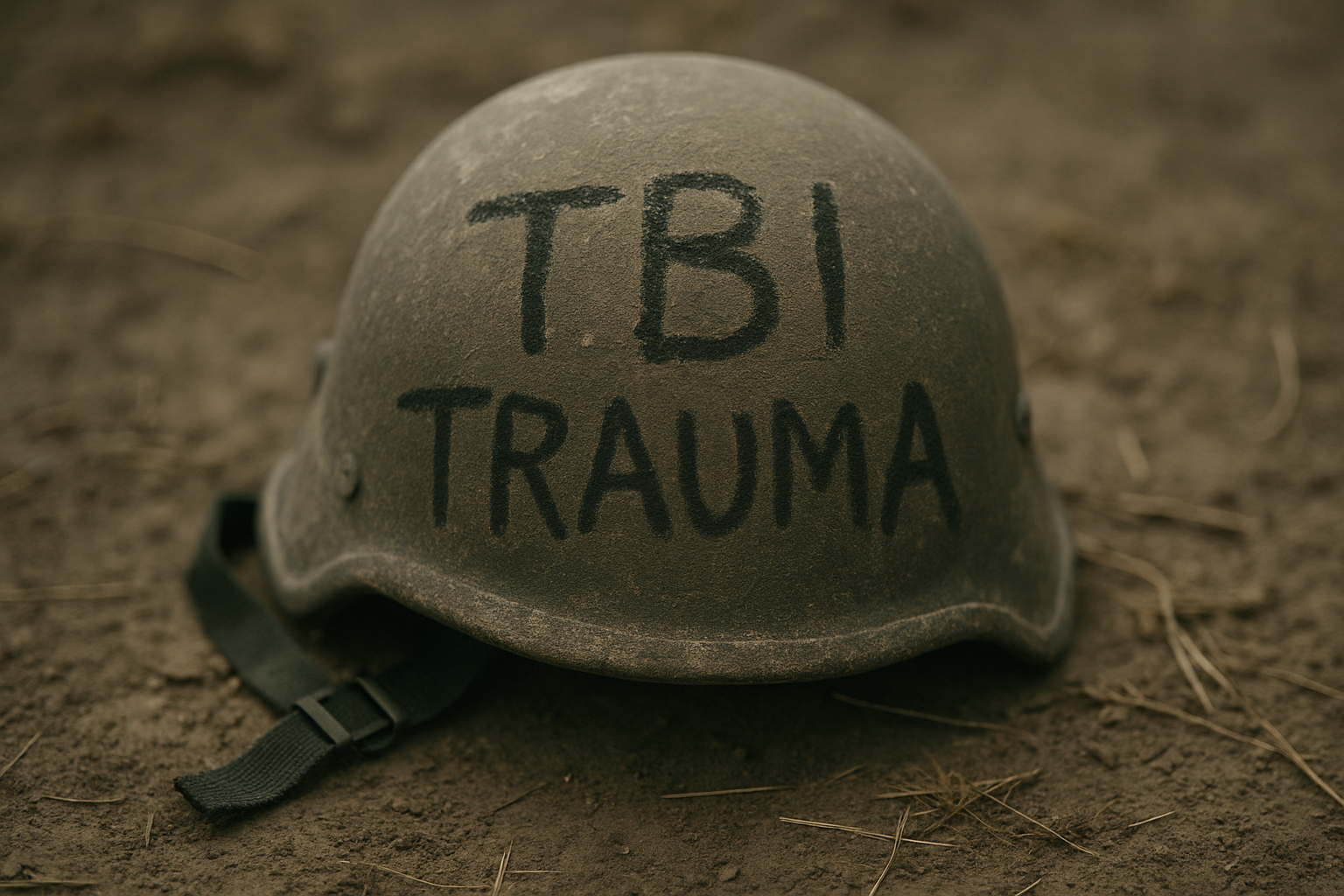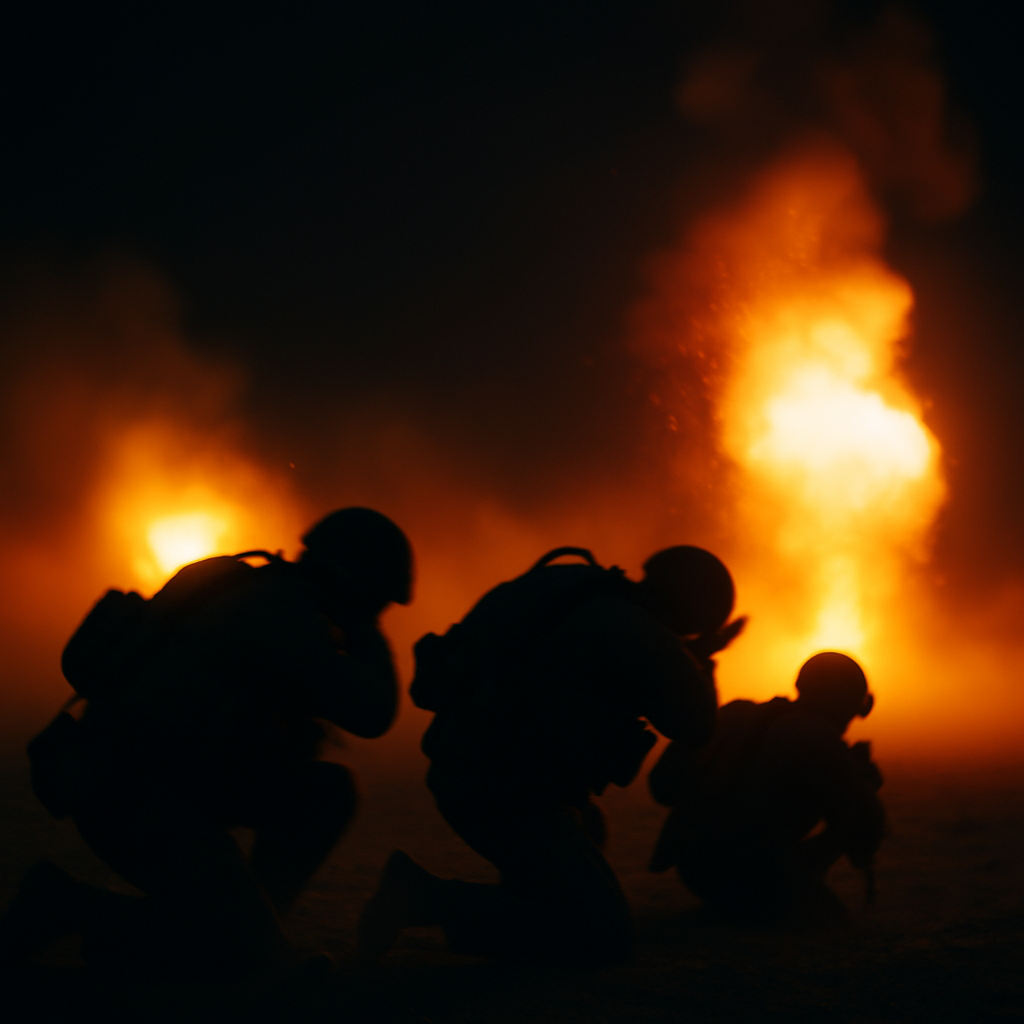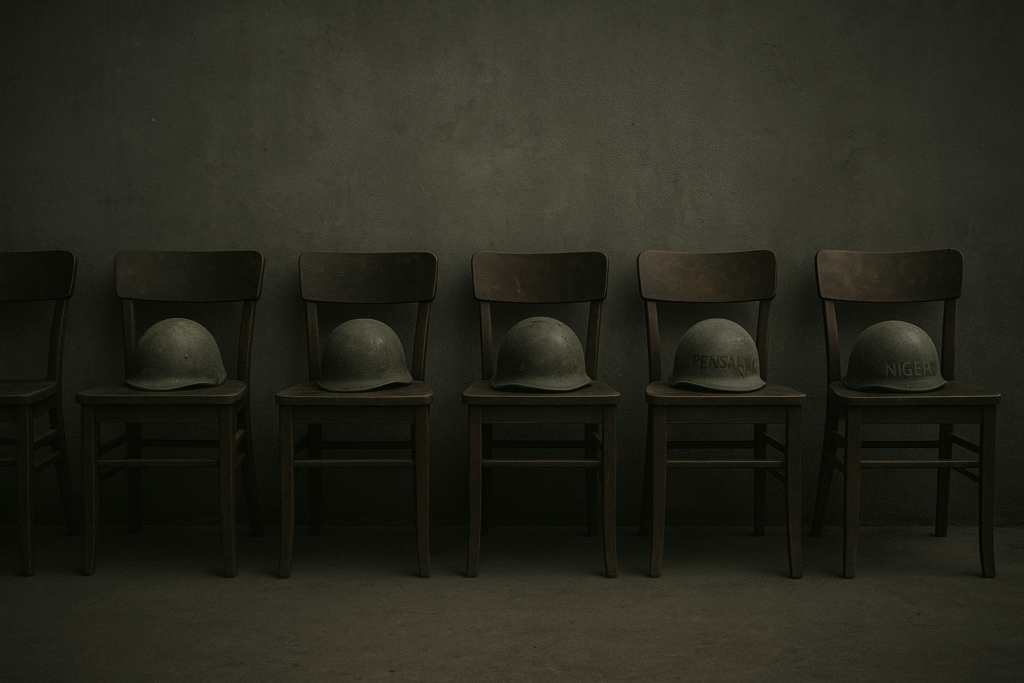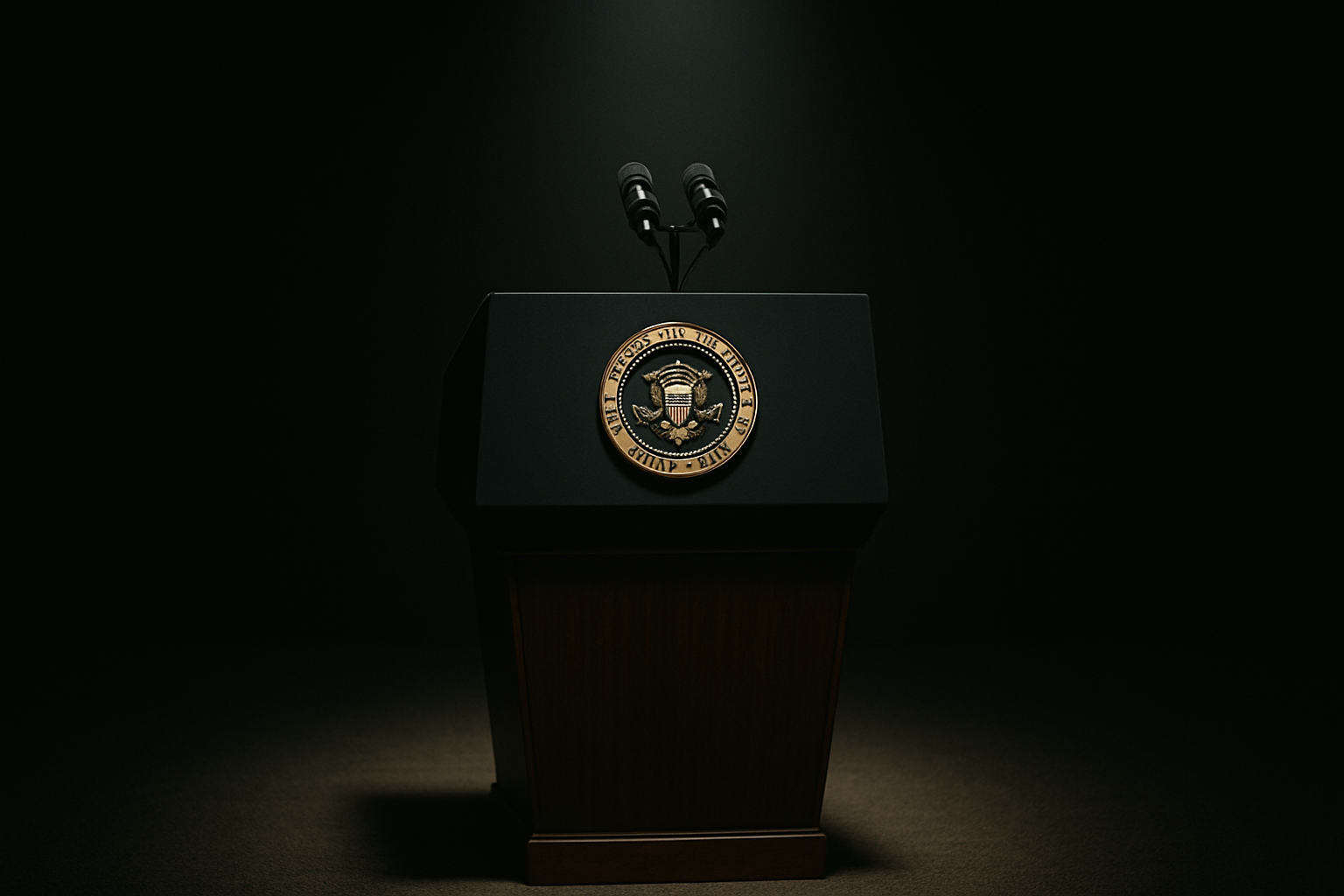By Hatchet News Staff
As missiles streak across the skies between Iran and Israel, and the world teeters on the edge of a broader regional war, one question looms larger than most for Americans: Who can be trusted to lead the United States in a time of escalating global conflict?
For many of his most ardent supporters, President Donald J. Trump is the answer. They view him as a tough-talking nationalist, a so-called dealmaker who will keep America out of “endless wars.” But that persona—a blustering figure who claims he alone can protect the nation—is paper-thin when placed under the harsh light of history.
In reality, Donald Trump is not a wartime leader. He is a coward at heart.
When Americans were attacked, when foreign actors committed violence on U.S. soil or against U.S. troops, Trump did not act decisively or with strength. He folded. He equivocated. And often, he remained silent.
A Dangerous Moment in History
In 2025, Iran and Israel are engaged in direct military conflict. It is a moment many feared for years: ballistic missile exchanges, proxy escalations in Lebanon and Syria, and cyberattacks targeting regional infrastructure. The U.S. is already indirectly involved—its bases in Iraq and Syria are under threat, and its diplomatic channels are in overdrive trying to prevent a regional explosion.
Now Americans must ask: What would Trump do if American troops came under attack?
We don’t need to guess. We’ve seen the answer before. And it’s terrifying.
May 2017: Turkish Thugs Beat Protesters in D.C.
Let’s begin not with a war zone, but on U.S. soil—in the heart of Washington, D.C.
In May 2017, as Turkish President Recep Tayyip Erdoğan visited the capital, his security guards violently attacked peaceful American protesters outside the Turkish ambassador’s residence. Video footage showed men in suits—Erdoğan’s personal security—charging at demonstrators, kicking and punching them while local police struggled to intervene.
The attack was an egregious violation of U.S. sovereignty. Eleven people were injured, and it took place in broad daylight on American turf.
And what was Trump’s response?
Silence.
Not a forceful condemnation. Not the expulsion of Turkish diplomats. Not even a tweet.
Eventually, charges were brought against several Turkish security officers, only to be quietly dropped months later—reportedly as part of a diplomatic bargain. The message sent was clear: Trump was willing to let foreign agents commit violence against Americans on U.S. soil if it spared him an uncomfortable phone call or jeopardized a relationship with an authoritarian leader.
That’s not strength. That’s cowardice masquerading as diplomacy.

January 2020: Iran Bombards U.S. Troops—Trump Minimizes Brain Injuries
Fast-forward to January 2020. After ordering the drone strike that killed Iranian General Qasem Soleimani, Trump put U.S. troops in Iraq in the crosshairs.
Iran retaliated with a dramatic missile barrage on Al-Asad Air Base in Iraq, where hundreds of American troops were stationed. Over a dozen ballistic missiles struck their targets in a clear act of war.
Miraculously, no one was killed—but more than 100 American soldiers suffered traumatic brain injuries.
And what did Trump say?
“I heard they had headaches… and I don’t consider them very serious injuries.”
He downplayed the injuries. He mocked the trauma. And most damningly, he did not respond militarily.
This was not restraint—it was weakness. Iran had just launched a direct military strike against U.S. troops, and Trump’s only act was to retreat from accountability and minimize the damage to save face.
That’s not strategy. That’s the instinct of a man who flinches under pressure.

December 2019: A Saudi Trainee Kills Americans on a Naval Base
In December 2019, a member of the Saudi Royal Air Force, training at Pensacola Naval Air Station in Florida, opened fire on his American classmates, killing three sailors and wounding several others.
This was not a random act of gun violence. The FBI determined it was a terrorist attack, and later uncovered that the shooter had been in contact with al-Qaeda operatives.
The American public demanded answers—and accountability.
Trump’s response? He praised Saudi Arabia.
“The king and crown prince of Saudi Arabia… are devastated by what took place in Pensacola, and they’re going to help the families very greatly.”
Rather than freezing military training programs or expelling Saudi personnel, Trump bent over backward to protect his relationship with Riyadh.
Three Americans were dead. The attacker was part of a foreign military program run by the Pentagon. And yet Trump showed no spine, no outrage, no policy shift.
Why? Because confronting the Saudis would have taken courage. It might have risked arms deals. So, Trump folded.
October 2017: U.S. Soldiers Ambushed in Niger
In one of the most underreported tragedies of Trump’s presidency, four U.S. soldiers were ambushed and killed in Niger during a joint patrol with local forces. The attack, linked to Islamic State militants, shocked the Pentagon and exposed how little oversight existed over U.S. troop deployments in Africa.
Trump’s response? Delay, denial, and defensiveness.
He waited nearly two weeks to comment publicly, and when he finally did, it was to claim—falsely—that he had called all Gold Star families, unlike past presidents.
His only true reaction was to lash out at critics who questioned his handling of the aftermath. There was no policy reevaluation. No public reassessment of the mission. Just another round of Trumpian bluster trying to mask his fear of real accountability.
April 2020: Iran-Backed Militias Kill Americans in Iraq
In April 2020, Iranian-backed militias launched rockets at Camp Taji in Iraq, killing two American service members and a British medic.
Trump did nothing of note.
These were U.S. citizens, killed by proxies armed and supported by Iran. But once again, Trump flinched. There was no meaningful retaliation, no sanctions escalation, no demand for international justice.
He was willing to shout threats on Twitter, but when American blood was spilled, he stayed behind the curtain—a wizard of bravado with no real resolve.

The Pattern: Bullies Abroad, Silence at Home
A pattern emerges across all these events: when Americans were in danger, when foreign actors attacked, Trump consistently chose inaction.
He prioritized photo ops over defense, public theater over private bravery.
- Turkish agents beat U.S. citizens in Washington: Trump did nothing.
- Iran bombed American troops: Trump mocked the wounded.
- A Saudi military student murdered sailors: Trump protected the Saudis.
- ISIS ambushed U.S. troops in Africa: Trump lied about his response.
- Iranian-backed militias killed Americans in Iraq: Trump looked the other way.
This isn’t leadership. It’s abdication. It’s the behavior of someone who craves power but is terrified of its consequences.
A Coward in the Face of Authoritarianism
What makes Trump’s cowardice especially dangerous in today’s context—as Iran and Israel engage in real war—is his repeated pattern of deference to authoritarian leaders.
He praised Vladimir Putin as a “strong leader.” He called North Korea’s Kim Jong-un “honorable.” He defended Erdoğan, Mohamed bin Salman, and other strongmen.
These are not allies. They are opportunists who will exploit weakness at every turn.
And weakness is exactly what Trump radiates—not the weakness of lack of force, but the weakness of character. The kind that avoids difficult truths. The kind that lets others pay the price while he basks in praise and distance.
The Iran-Israel War Demands a Real Leader
This is not a time for showmen or chest-thumpers. If the United States is pulled deeper into the Middle East conflict—either through direct attacks on troops, proxy clashes in Iraq and Syria, or pressure to defend Israel or evacuate embassies—it will require sober, principled, unflinching leadership.
Trump has proven again and again that he lacks the spine.
When Iran struck our soldiers, he blinked.
When allies were killed in training programs, he bent the knee.
When foreign governments violated our sovereignty, he turned away.
Imagine a repeat of these events amid a full-scale regional war—would Trump stand tall, or fold again?
History tells us everything we need to know.

America Can’t Afford Another Trump Retreat
The myth of Trump as a wartime president is just that—a myth.
Behind the red hats and rally slogans is a man who, when the moment truly calls for courage, shirks responsibility and lets others take the hit.
In a world where missiles are flying, oil routes are closing, and U.S. lives are at stake, we cannot afford a leader who fears the phone ringing in the night. We need someone who will answer it—not duck behind the curtain and tweet.
Trump is not that leader.
He never was.



Hello! winph111login, Very nice gaming experience. You can get rich on this website. Highly recommended to everyone to try it: winph111login
S666welcome, eh? Never heard of ’em ’til now. Gave their site a quick once-over. Looks kinda flashy. Wonder if the games are any good. Anyone tried it? Here’s the link: s666welcome
Reading your article helped me a lot and I agree with you. But I still have some doubts, can you clarify for me? I’ll keep an eye out for your answers.
Hey, Kabayan! If you’re looking for a reliable online spot, check out bigwin29cebu. Been playing there lately and so far, so good. Give it a spin! bigwin29cebu
Can you be more specific about the content of your article? After reading it, I still have some doubts. Hope you can help me.
Can you be more specific about the content of your article? After reading it, I still have some doubts. Hope you can help me. https://accounts.binance.com/fr-AF/register?ref=JHQQKNKN
Yo, need that mobile fix? y444gameapk is your hookup for the latest game APKs. Download and get gaming on the go. Check y444gameapk out now!
Looking for a new place to play Heard some interesting stuff about ganamax. Might be worth checking out to see if they suit your style: ganamax
Alright, so I found winpkr17.net and figured why not? Site looked pretty clean and the games look solid. Let’s see if I can actually win something this time! Give it a shot: winpkr17
Looking for a new gaming site to try, and 6ffgame caught my eye. The game selection looks decent. Time to dive in and see if it’s a winner! Give it a whirl 6ffgame
Guys, f8et is quickly turning into one of my go-to sites. The interface is clean and I’ve been winning pretty steadily so far. Maybe my new lucky site? Give it a shot: f8et
Alright, alright, let’s talk vnbet88. The live casino games are pretty slick. Had a good time playing blackjack. Definitely worth a look if you’re into that!
Casinomcw1188 offers a fun user experience and a decent selection of games. I recommend seeing if casinomcw1188 has anything interesting to you!
I’ve been messing around on jogabet and it’s not bad at all! A decent place to kill some time. Give it a shot if you’re bored. You might get hooked. Learn more here: jogabet
Downloaded the nustaronlineapp the other day, and I’m pleasantly surprised! Pretty user-friendly and gets the job done. Check it out if you need something similar. Find it here: nustaronlineapp
Can you be more specific about the content of your article? After reading it, I still have some doubts. Hope you can help me.
Thanks for sharing. I read many of your blog posts, cool, your blog is very good.
Can you be more specific about the content of your article? After reading it, I still have some doubts. Hope you can help me. https://accounts.binance.com/ar/register?ref=PORL8W0Z
Can you be more specific about the content of your article? After reading it, I still have some doubts. Hope you can help me.
Thank you for your sharing. I am worried that I lack creative ideas. It is your article that makes me full of hope. Thank you. But, I have a question, can you help me?
77vip sounds exclusive! I’ll have to see what the fuss is about. Hopefully, the perks are worth it. Worth a look I think. 77vip
Looking for some casino action and Betsson Casino sounds interesting. Variety of games keeps things fresh! See their offerings here: betsson casino
Si andas buscando dónde apostar, 10bet México rifa. Tienen todo lo que necesitas y la página es fácil de usar. ¡Éntrale sin miedo! Acá te dejo el link: 10bet méxico
I don’t think the title of your article matches the content lol. Just kidding, mainly because I had some doubts after reading the article. https://www.binance.com/es-AR/register?ref=UT2YTZSU
Can you be more specific about the content of your article? After reading it, I still have some doubts. Hope you can help me. https://accounts.binance.com/register-person?ref=IXBIAFVY
Okay, b777casino, let’s talk. I’ve had my ups and downs here. Some days it’s a total win, other days… well, let’s just say I stick to the slots I know. The selection’s pretty good overall, so it’s worth a look. Give it a shot here: b777casino
Hey now, zh888game, you got some interesting stuff going on. The graphics are sharp and the gameplay is pretty smooth. I’m still exploring, but so far, so good. If you’re looking for something new, give it a try via: zh888game
Downloaded jj804gameapk the other day. Easy install, and the game selection is surprisingly varied. Perfect for when I’m chilling on the couch and want a quick game. Grab it here: jj804gameapk
Thank you for your sharing. I am worried that I lack creative ideas. It is your article that makes me full of hope. Thank you. But, I have a question, can you help me?